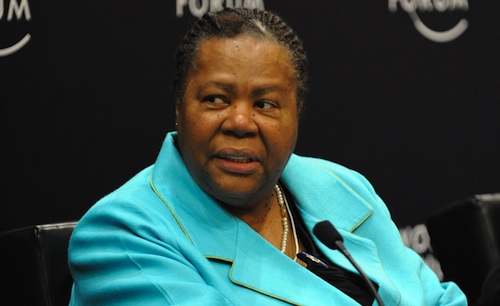
The department of science & technology has entered a partnership with Nokia to drive growth in SA’s technology sector. One of the cornerstones of the partnership is mLab, a mobile applications laboratory Nokia has established with support from the department, the World Bank and the CSIR.
The lab is a physical space where mobile technology entrepreneurs and innovators can develop solutions and build new mobile businesses.
“Nokia will be testing and certifying applications, providing training and accreditation, providing business mentoring, fostering outreach activities, driving research programmes and providing finance to promising start-ups,” says Jussi Hinkkanen, vice president of government relations for the company’s operations in the Middle East and Africa.
mLab will be launched on 15 September.
Under the agreement between Nokia and science & technology, the Finnish company will also work with government to promote MoMaths, a science and mathematics educational programme that Nokia has been piloting in SA since late 2009.
Aimed at grade 10 students — Nokia says research shows this is the most challenging year for students — MoMaths is “not just about pushing content to students, but about rethinking the pedagogic approach to teaching mathematics”, says Hinkkanen.
Based on open-source software, MoMaths includes about 10 000 exercises in its database and supports any GPRS-enabled device, not just Nokia handsets. It is intended for both classrooms and after hours use and Nokia says 82% of use so far has occurred out of school hours.
The company says MoMaths allows teachers to track pupils’ progress, provides a diagnostic tool for problem areas and allows teachers to refresh their own skills.
The MoMaths curriculum is closely tied to the SA national curriculum and is operated on a framework based on popular mobile social network MXit.
Nokia’s SA partners, SchoolNet and Mindset Learn, have been tasked with maintaining the service.
Rufus Andrew, MD of Nokia Siemens Networks in SA, says the company is supporting the country’s bid for the Square Kilometre Array (SKA) radio telescope by providing modelling of the network requirements and acting in an advisory and capacity planning role.
Science & technology minister Naledi Pandor says developing the technology sector and broadening access to infrastructure is crucial for “developing knowledge economies and for driving socioeconomic growth and development”.
Pandor says her department is talking to Dimension Data, Microsoft, IBM and other companies to support the telescope bid. SA’s rival for the multibillion-dollar project is Australia. — Craig Wilson, TechCentral
- Subscribe to our free daily newsletter
- Follow us on Twitter or on Facebook




